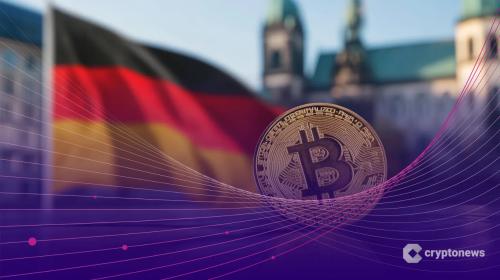Germany’s Central Bank President Backs Digital Euro

Germany’s Bundesbank President, Joachim Nagel, stressed during a recent event that introducing a digital euro is crucial for preserving Europe’s financial independence.
Speaking at an OMFIF event at the London School of Economics on February 12, Nagel highlighted the role of a digital euro in maintaining financial sovereignty.
#Europe should introduce a digital currency – both for retail and wholesale use – as a sovereign instrument to stand up against private sector forces in global finance, according to Joachim Nagel, president of the @bundesbank. https://t.co/bvArTIDYVf pic.twitter.com/1oSslvFdaU
— OMFIF (@OMFIF) February 14, 2025
He described it as a sovereign instrument that would allow the public to conduct transactions using a virtual form of central bank money, similar to cash.
Nagel reiterated that the introduction of a digital euro is key to maintaining financial autonomy, ensuring that Europe remains resilient against private sector dominance in global finance.
Without a digital euro, he warned, Europe could become reliant on foreign-controlled payment systems, which, in a geopolitical crisis, might be leveraged against European interests.
Beyond financial independence, Nagel also underscored the importance of user privacy in discussions about the digital euro.
He assured that financial institutions processing digital euro payments would be prohibited from using personal and transaction-related data for commercial purposes without explicit user consent.
Skepticism Towards Bitcoin
While advocating for a digital euro, Nagel maintained a critical stance on Bitcoin.
He described the cryptocurrency as “digital tulips,” drawing a parallel to the speculative tulip mania of the 17th century.
Nagel rejected the idea of central banks holding Bitcoin. He argued that such assets lack the liquidity and transparency necessary for official reserves.
His stance contrasts with that of Aleš Michl, Governor of the Czech National Bank (CNB), who has proposed exploring Bitcoin as part of reserve diversification.
🇨🇿 The Czech National Bank, led by Governor Aleš Michl, considers #Bitcoin as a reserve asset to diversify holdings. Gold remains a core focus, but crypto’s growing appeal offers new opportunities.#Cryptocurrency #CzechNationalBank $BTChttps://t.co/S2oSztIjPA
— Cryptonews.com (@cryptonews) January 7, 2025
In an interview with the Financial Times, Michl suggested that the CNB could consider adding Bitcoin to its reserves. However, this proposal has met with skepticism.
Critics, including Karim Al-Mansour, CEO of Amanah Capital, argue that central banks are not hedge funds and should prioritize liquidity, stability, and capital preservation over speculative returns.
The debate over integrating cryptocurrencies like Bitcoin into national reserves continues to evoke diverse opinions among European financial leaders.
While some advocate embracing digital assets as part of a modernized financial strategy, others, like Nagel, urge caution, emphasizing stability and transparency in central bank practices.
Leadership Changes in the Digital Euro Debate
As discussions on the digital euro progress, leadership changes have also emerged within the European Parliament.
💶 The leader of the European Parliament's digital euro project resigned to dispel claims that the German center-right was blocking progress.#DigitalEuro #CBDC https://t.co/hmPb2sSRpo
— Cryptonews.com (@cryptonews) December 13, 2024
Stefan Berger, who was leading efforts on the digital euro, resigned to counter claims that Germany’s center-right was stalling the project.
He stated that a non-German leader should take over to ensure transparency in the decision-making process.
His replacement is expected to be announced soon, with Spain’s Fernando Navarrete Rojas among the potential candidates.
The digital euro conversation cuts to the core of Europe’s pursuit of autonomy in an era of fast-changing technology and global jockeying.
For policymakers and citizens alike, the crux is to embrace fresh possibilities while reinforcing the bedrock principles that have long underpinned European economic stability.
Source: cryptonews.com



